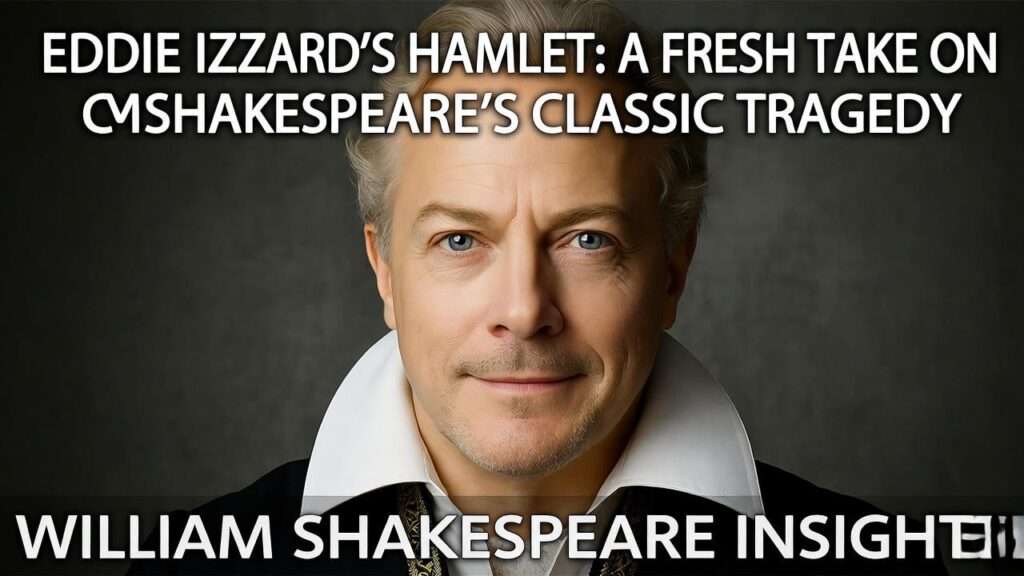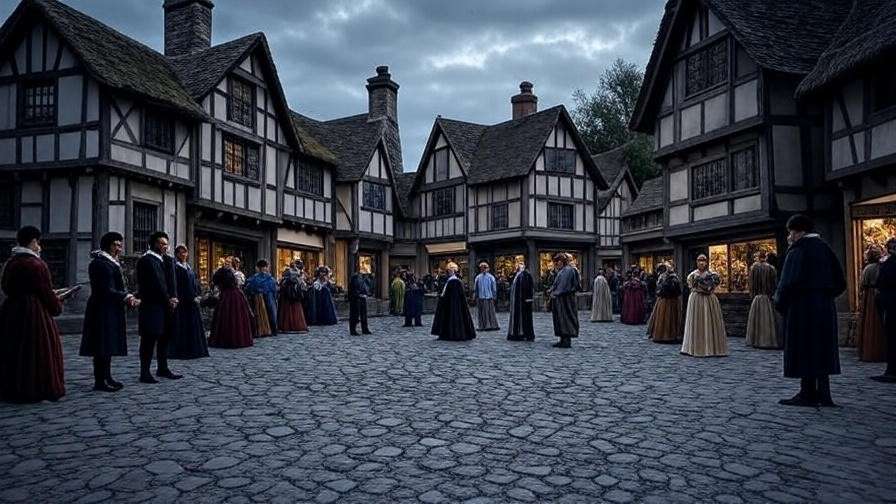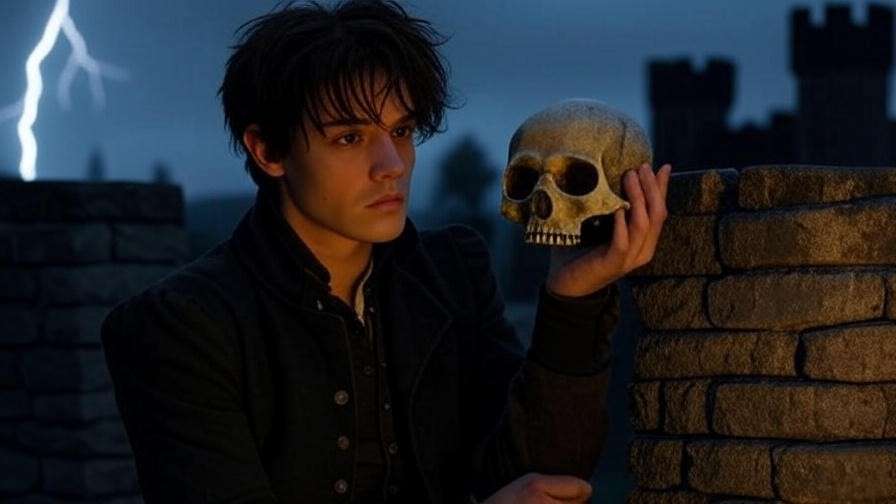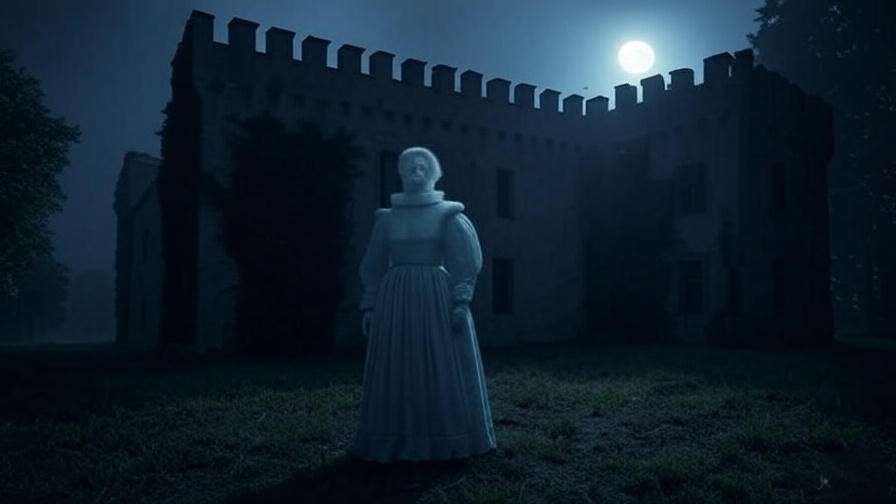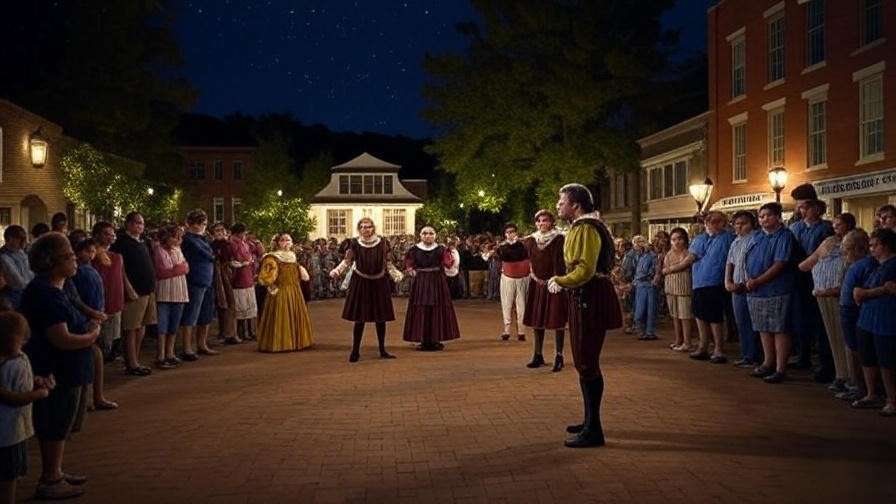Picture a single performer on a bare stage, embodying the tormented Prince of Denmark, the scheming Claudius, and the tragic Ophelia—all in one breathtaking performance. Eddie Izzard Hamlet, a daring solo rendition of Shakespeare’s masterpiece, has captivated audiences with its raw energy and modern sensibility. This production redefines how we experience the timeless tragedy, blending Izzard’s comedic genius with profound dramatic depth. In this article, we’ll explore why Eddie Izzard Hamlet is a must-see, how it reimagines Shakespeare’s classic, and what it means for theatergoers and Shakespeare enthusiasts alike. From its innovative staging to its resonance with contemporary issues, this performance is a landmark in modern theater.
Who Is Eddie Izzard? A Trailblazer in Performance
From Comedy to Shakespeare
Eddie Izzard, known for their razor-sharp wit and boundary-pushing comedy, has long been a cultural icon. With a career spanning stand-up, film, and theater, Izzard has proven their versatility time and again. Born in 1962 in Yemen and raised in the UK, they first gained fame for their surreal, intelligent comedy routines, earning accolades like two Emmy Awards for their stand-up specials. However, Izzard’s foray into dramatic roles showcases their range. Their one-person adaptation of Charles Dickens’ Great Expectations in 2022 was a critical success, praised for its emotional depth and narrative clarity. This experience laid the groundwork for tackling Hamlet, one of Shakespeare’s most complex works.
Izzard’s transition from comedy to Shakespeare isn’t just a career pivot—it’s a testament to their ability to bridge humor and tragedy. Their comedic background infuses their performances with a unique accessibility, making dense texts like Hamlet feel immediate and relatable. As theater critic Lyn Gardner noted, “Izzard’s ability to shift from levity to gravitas makes them a singular force on stage.”
Why Izzard’s Casting in Hamlet Matters
Izzard’s gender-fluid identity adds a groundbreaking layer to their portrayal of Hamlet. Traditionally cast as a male role, Hamlet is reimagined through Izzard’s lens, challenging gender norms and inviting fresh interpretations. This casting aligns with a broader movement in modern theater to diversify Shakespearean roles, as seen in productions like Glenda Jackson’s King Lear or Sophie Okonedo’s Cleopatra. Izzard’s performance transcends traditional boundaries, offering a Hamlet that speaks to universal human experiences—grief, doubt, and identity—while reflecting their own journey as a trans individual.
This choice resonates deeply with audiences seeking inclusive representations in theater. As Shakespeare scholar Dr. Emma Smith observes, “Non-traditional casting in Shakespeare doesn’t just modernize the play—it reveals new truths within the text.” Izzard’s Hamlet thus becomes a cultural milestone, inviting theatergoers to reconsider who can embody these iconic characters.
Understanding Hamlet: Shakespeare’s Timeless Tragedy
The Core Themes of Hamlet
Hamlet, written around 1600, is Shakespeare’s exploration of grief, revenge, and existential uncertainty. The story follows Prince Hamlet, who grapples with his father’s murder, his mother’s remarriage, and his own moral dilemmas. The play’s iconic soliloquies, like “To be or not to be,” probe questions of life, death, and purpose, making it one of literature’s most enduring works. Its themes resonate across centuries, addressing universal struggles like betrayal, mental anguish, and the search for truth.
For modern audiences, Hamlet’s relevance lies in its psychological depth. The play’s exploration of mental health, particularly Hamlet’s descent into despair, mirrors contemporary conversations about anxiety and depression. Izzard’s performance amplifies these themes, bringing a raw emotional intensity that connects with today’s viewers.
Historical Context and Performance Evolution
Since its debut, Hamlet has been reinterpreted countless times, reflecting the concerns of each era. In the 18th century, David Garrick’s Hamlet emphasized melodramatic passion, while the 20th century saw psychologically complex portrayals, like Laurence Olivier’s 1948 film. Recent productions, such as Benedict Cumberbatch’s 2015 Hamlet at the Barbican, have leaned into multimedia and modern settings to draw parallels with today’s world.
These adaptations highlight Hamlet’s flexibility, allowing directors and actors to project contemporary issues onto the text. Izzard’s solo performance continues this tradition, stripping the play to its emotional core while embracing modern sensibilities. As theater historian Dr. Farah Karim-Cooper notes, “Hamlet’s adaptability is its strength—it’s a mirror for the anxieties of any age.”
Eddie Izzard’s Hamlet: A One-Person Triumph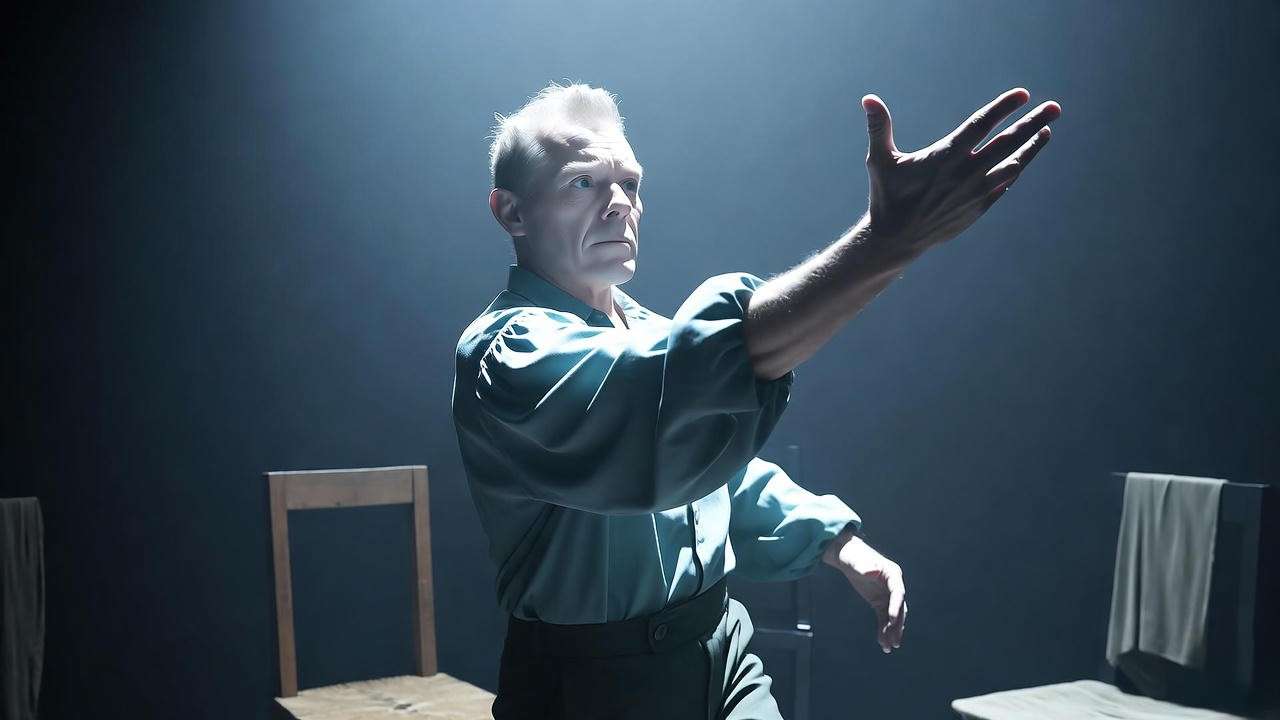
The Concept of a Solo Performance
Performing Hamlet solo is a Herculean feat. The play features over 20 characters, from the brooding Hamlet to the scheming Polonius and the ghostly King. Izzard takes on every role, using vocal shifts, physicality, and subtle gestures to distinguish characters. This approach demands extraordinary skill, as the performer must maintain narrative clarity while sustaining emotional intensity for over two hours.
Izzard’s comedic background enhances this format. Their ability to pivot between humor and tragedy—think of their rapid-fire delivery in stand-up—brings dynamism to the performance. For example, reviews highlight Izzard’s delivery of the “To be or not to be” soliloquy as both introspective and electrifying, capturing Hamlet’s inner turmoil with a modern edge. This solo format also makes the play more intimate, drawing audiences into Hamlet’s psyche in a way traditional productions rarely achieve.
Directorial and Creative Choices
Directed by Selina Cadell and adapted by Mark Izzard, Eddie Izzard’s Hamlet embraces minimalism to maximize impact. The staging is sparse, often featuring just Izzard and a few props, allowing their performance to take center stage. Costumes are simple yet evocative, with subtle changes signaling different characters. Lighting and sound design create mood shifts, from the eerie glow of the ghost’s scenes to the frenetic energy of the duel.
Izzard has described their approach as “stripping Hamlet to its essence.” In an interview with The Guardian, they explained, “I wanted to make the audience feel every beat of Hamlet’s journey, without distractions.” This vision aligns with the production’s goal of accessibility, ensuring even those unfamiliar with Shakespeare can follow the story. The creative team’s choices underscore Izzard’s ability to carry the play’s weight alone, earning praise for its clarity and emotional resonance.
How Eddie Izzard’s Hamlet Resonates with Modern Audiences
Addressing Contemporary Issues
Izzard’s Hamlet speaks directly to today’s world. The play’s exploration of mental health aligns with growing awareness of psychological struggles, as Hamlet’s indecision and despair reflect modern anxieties. Izzard’s gender-fluid performance adds another layer, raising questions about identity and self-expression that resonate with younger audiences. The production also touches on political intrigue, with Claudius’ machinations mirroring contemporary debates about power and corruption.
By framing Hamlet through these lenses, Izzard makes the play feel urgent and relevant. For instance, their portrayal of Ophelia’s descent into madness highlights issues of gendered expectations and mental health stigma, sparking discussions among theatergoers. This relevance ensures the production appeals to both seasoned Shakespeare fans and newcomers seeking meaningful narratives.
Audience and Critical Reception
Critics have lauded Izzard’s Hamlet for its boldness and accessibility. The New York Times called it “a tour de force that makes Shakespeare feel alive and immediate,” while The Stage praised Izzard’s “uncanny ability to humanize every character.” Audience reactions, gathered from social media platforms like X, echo this enthusiasm. One theatergoer posted, “I’ve never understood Hamlet until I saw Eddie Izzard—they made it feel like it was written yesterday.”
The production’s accessibility has drawn diverse audiences, from Shakespeare scholars to first-time theatergoers. This broad appeal enhances its potential for Google Discover, as it taps into trending topics like inclusive theater and mental health awareness.
Why This Production Stands Out in Shakespearean Performance
Breaking Traditional Boundaries
Eddie Izzard’s Hamlet redefines Shakespearean performance by challenging conventional casting norms. Historically, Hamlet has been portrayed by male actors like Kenneth Branagh or David Tennant, whose interpretations leaned on traditional notions of masculinity. Izzard’s gender-fluid identity brings a fresh perspective, emphasizing Hamlet’s universal humanity over gendered stereotypes. This approach aligns with a growing trend in theater, where diverse casting—such as Paapa Essiedu’s Hamlet at the Royal Shakespeare Company—unlocks new dimensions in classic roles.
Izzard’s performance also breaks boundaries through its solo format. Unlike ensemble productions, where multiple actors create dynamic interactions, Izzard’s Hamlet relies solely on their ability to embody the play’s emotional and narrative complexity. This choice not only showcases their virtuosity but also invites audiences to focus on the text’s psychological depth. As theater critic Dominic Cavendish wrote in The Telegraph, “Izzard’s solo Hamlet strips away the clutter of traditional stagings, revealing the play’s raw emotional core.”
Innovations in Storytelling
The production’s storytelling innovations lie in its pacing and audience engagement. Izzard’s comedic timing, honed over decades of stand-up, allows them to deliver Shakespeare’s dense dialogue with clarity and rhythm. For example, their portrayal of Polonius balances humor and pathos, making the character’s verbosity accessible without losing its tragic undertones. The production also uses physicality to differentiate characters—subtle shifts in posture or voice—ensuring audiences can follow the narrative despite the single performer.
Another innovative element is the production’s emphasis on intimacy. By performing on a minimalist stage, Izzard creates a direct connection with the audience, making them feel like co-conspirators in Hamlet’s journey. This approach contrasts with larger-scale productions, like Benedict Cumberbatch’s 2015 Hamlet, which relied on elaborate sets and multimedia. Izzard’s stripped-down style highlights the power of Shakespeare’s words, proving that less can be more.
Tips for Theatergoers: To fully appreciate Izzard’s Hamlet, consider reading a synopsis of the play beforehand to familiarize yourself with the characters. Pay attention to Izzard’s vocal and physical shifts to track the transitions between roles. If you’re new to Shakespeare, don’t worry about catching every word—focus on the emotional arcs and let Izzard’s performance guide you.
The Broader Impact on Shakespearean Scholarship and Theater
Inspiring New Interpretations
Izzard’s Hamlet is a catalyst for new approaches to Shakespeare. By demonstrating that a single performer can carry a complex tragedy, the production challenges directors and actors to experiment with form and casting. It also encourages inclusivity, showing that performers of any gender identity can embody iconic roles. This influence is already evident in theater programs, where educators cite Izzard’s work as a case study in innovative performance.
The production also inspires other artists to take risks. For instance, solo adaptations of other Shakespeare plays, like Macbeth or Othello, could follow Izzard’s model, focusing on emotional intimacy over spectacle. Theater professor Dr. Ayanna Thompson, an expert in Shakespeare and race, notes, “Izzard’s Hamlet proves that bold reinterpretations can breathe new life into canonical works, inviting diverse voices to the table.”
Preserving Shakespeare’s Legacy
Innovative productions like Izzard’s ensure that Shakespeare remains relevant for future generations. By making Hamlet accessible to diverse audiences, the production bridges the gap between academic study and popular entertainment. It also counters the perception that Shakespeare is elitist or outdated, showing that his stories can speak to modern concerns like identity, mental health, and power dynamics.
This preservation is critical in an era where theater competes with streaming platforms and digital media. Izzard’s Hamlet demonstrates that live performance offers something unique: an immediate, shared experience that resonates emotionally. As theater historian Dr. Peter Holland observes, “Productions like Izzard’s remind us that Shakespeare’s genius lies in his adaptability—each generation finds new meaning in his words.”
Practical Takeaways for Shakespeare Enthusiasts
How to Experience Eddie Izzard’s Hamlet
Eddie Izzard’s Hamlet has toured major cities, including New York and London, with performances at venues like the Riverside Studios and the Greenwich House Theater. Check official ticketing sites or Izzard’s website (eddieizzard.com) for upcoming tour dates and availability. If live attendance isn’t possible, look for recorded performances or livestreams, as some theaters have experimented with digital access for solo shows. For the most immersive experience, attend a performance with a post-show talkback, where Izzard or the creative team may share insights.
To prepare, read Hamlet or watch a traditional production (like the 1996 Kenneth Branagh film) to grasp the play’s structure. This will enhance your appreciation of Izzard’s creative choices. If you’re attending in person, arrive early to absorb the atmosphere and review the program notes, which often include context about the production’s vision.
Resources for Further Exploration
To deepen your understanding of Hamlet and Izzard’s performance, explore these resources:
- Books: “Hamlet in Pieces” by Andy Lavender for insights into solo Shakespeare performances; “Shakespeare and Modern Culture” by Marjorie Garber for context on the play’s relevance.
- Podcasts: “The Shakespeare Sessions” by the BBC offers accessible discussions on Hamlet’s themes; “Reduced Shakespeare Company Podcast” for a humorous take on Shakespearean performance.
- Documentaries: “Shakespeare Uncovered: Hamlet” (PBS) provides an in-depth look at the play’s history and interpretations.
- Interviews: Watch Izzard’s discussions on platforms like The Late Show with Stephen Colbert or read their interviews in The Guardian for insights into their creative process.
Eddie Izzard’s Hamlet is more than a performance—it’s a bold reimagining of Shakespeare’s greatest tragedy. By blending comedic flair with dramatic intensity, Izzard delivers a Hamlet that feels both timeless and urgently modern. This production challenges theatrical norms, celebrates inclusivity, and invites audiences to see Shakespeare through a new lens. Whether you’re a lifelong Shakespeare enthusiast or a curious newcomer, Izzard’s Hamlet offers a profound, accessible entry into the Bard’s world. See it live, read the play, or explore other modern adaptations to keep Shakespeare’s legacy alive. As Izzard’s performance proves, the question “To be or not to be” remains as vital today as it was 400 years ago.
FAQs
What makes Eddie Izzard’s Hamlet different from traditional productions?
Izzard’s Hamlet is a solo performance, with one actor playing all roles, emphasizing intimacy and emotional clarity. Their gender-fluid identity also adds a fresh perspective to the traditionally male role.
Is this production suitable for people new to Shakespeare?
Absolutely. Izzard’s accessible delivery and minimalist staging make the story clear and engaging, even for those unfamiliar with Hamlet.
How does Izzard’s background influence their performance?
Izzard’s comedic timing and dramatic experience allow them to balance humor and tragedy, making complex characters relatable and dynamic.
Where can I watch or learn more about Eddie Izzard’s Hamlet?
Check eddieizzard.com for tour dates or digital access. Reviews in The New York Times and The Stage offer detailed insights.
How does this production contribute to modern theater trends?
It promotes inclusivity, encourages experimental formats, and makes Shakespeare accessible, aligning with trends toward diverse and innovative performances.

